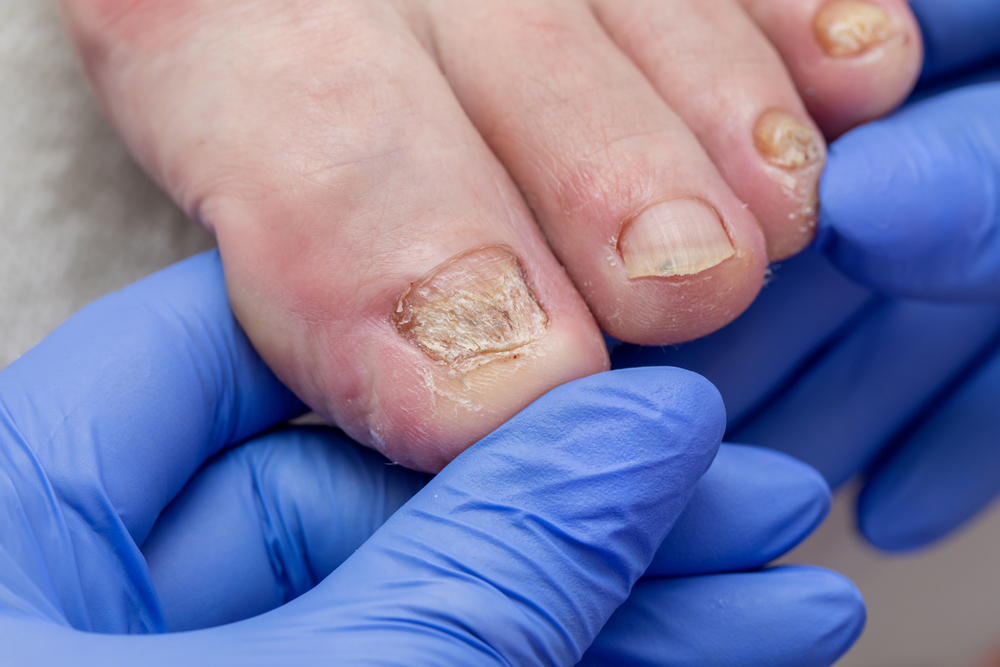
How Can I Prevent Foot Problems Related To Diabetes?
Millions of people around the world suffer from the chronic disease of diabetes. It may result in a number of issues, such as foot issues. The nerves and blood vessels in the feet can be damaged by high blood sugar levels, which increases the risk of infections, ulcers, and other problems. There are, however, a number of steps people with diabetes can take to avoid foot issues. This is where services such as podiatry come in to help protect your foot health. In this blog post, we’ll go over some practical strategies for maintaining good foot health and preventing diabetes-related complications.
Understanding Foot Problems Related To Diabetes
People with diabetes often experience foot problems due to nerve damage and reduced blood circulation in the feet. Some of the common foot problems that people with diabetes may experience include neuropathy, calluses, corns, blisters, fungal infections, and foot ulcers. In this section, we will discuss these foot problems in detail to help you better understand the risks and causes.
- Neuropathy: This is a type of nerve damage that occurs due to high blood sugar levels over an extended period. It can cause tingling, numbness, and burning sensations in the feet.
- Calluses and Corns: These are areas of thick, hardened skin that develop on the feet due to pressure or friction. People with diabetes are more prone to calluses and corns, which can lead to foot ulcers if left untreated.
- Blisters: Blisters can develop on the feet due to poorly fitting shoes or friction. In people with diabetes, blisters can take longer to heal and can lead to infections.
- Fungal infections: People with diabetes are more prone to fungal infections, such as athlete’s foot, due to the warm and moist environment that can develop in the feet.
- Foot ulcers: Foot ulcers are open sores that can develop on the feet due to poor circulation, nerve damage, and other foot problems. Foot ulcers can lead to serious infections and even amputations if left untreated.
Tips For Preventing Foot Problems
- Control Blood Sugar Levels: Consistently high blood sugar levels can damage your nerves and lead to peripheral neuropathy, which can cause numbness or tingling in your feet. Maintaining a healthy blood sugar level can prevent or slow the progression of nerve damage.
- Check Feet Daily: Regularly examining your feet can help detect any signs of foot problems such as cuts, blisters, or sores. It’s recommended to check your feet every day and report any abnormalities to your healthcare provider.
- Wear Appropriate Footwear: Choose shoes that fit well and have a wide toe box to reduce pressure on the toes. Avoid shoes with pointed toes, high heels or tight-fitting footwear. Wear shoes and socks made of breathable materials to keep your feet dry and prevent infections.
- Keep Feet Clean and Dry: Good foot hygiene is essential for preventing foot problems related to diabetes. Wash your feet daily with warm water and mild soap, and dry them thoroughly, especially between the toes, where moisture can accumulate.
- Moisturise Feet: Dry skin can crack and become more prone to infection, so it’s important to keep your feet moisturised. Avoid applying lotion between the toes, as this can create an environment that promotes the growth of fungi and bacteria.
- Trim Toenails Carefully: Trim your toenails straight across and avoid cutting them too short. If you have difficulty seeing or reaching your toenails, consider having a podiatrist do it for you.
- Exercise Regularly: Exercise can improve circulation and help prevent nerve damage. Engage in activities that are easy on your feet, such as swimming, cycling, or walking.
- Regular Checkups with a Podiatrist: Regular foot exams by a podiatrist can detect any foot problems early and prevent them from progressing. Your podiatrist can provide you with advice on foot care, footwear, and self-management techniques to prevent foot problems related to diabetes.

Importance Of Regular Podiatric Checkups
Regular podiatric checkups are essential for anyone living with diabetes. A podiatrist is a healthcare professional who specialises in treating conditions related to the feet and ankles. They can help identify potential problems before they become severe and offer advice on how to manage foot problems related to diabetes. Here are some reasons why regular podiatric checkups are important:
- Early Detection: Podiatric checkups can help identify foot problems related to diabetes in their early stages. This can prevent minor problems from becoming severe and potentially life-threatening. Early detection of foot problems can help prevent the need for amputation.
- Preventative Care: A podiatrist can offer advice on how to care for your feet and prevent foot problems from developing. This may include recommendations for proper footwear, foot hygiene, and exercises to improve foot health.
- Customised Treatment: If a foot problem is detected, a podiatrist can offer customised treatment plans that take into account the patient’s individual needs and preferences. This may include the use of orthotics or special footwear to alleviate pressure on the feet.
- Coordination of Care: A podiatrist can coordinate care with other healthcare professionals, such as endocrinologists and primary care physicians. This ensures that the patient receives comprehensive care for their diabetes and associated foot problems.
- Education: Podiatrists can educate patients on the importance of foot care and how to prevent foot problems related to diabetes. This can empower patients to take control of their foot health and prevent future complications.
What To Do If Foot Problems Occur
If you have diabetes, it’s important to act quickly if you notice any foot problems. Here are some steps you can take:
- Check your feet daily: Look for any signs of redness, swelling, blisters, calluses, or other changes in the skin. If you have trouble seeing the bottom of your feet, use a mirror or ask someone for help.
- Practice good foot hygiene: Wash your feet daily with warm water and mild soap, and dry them thoroughly, especially between the toes. Apply lotion or cream to keep the skin moist, but avoid applying it between the toes.
- Wear proper footwear: Choose shoes that fit well and provide good support, and wear clean, dry socks. Avoid tight shoes or high heels that can cause pressure points or blisters.
- Don’t go barefoot: Always wear shoes or slippers, even indoors, to protect your feet from injury.
- Manage your blood sugar levels: Keep your blood sugar levels within the target range recommended by your doctor to reduce the risk of nerve damage.
- Seek medical attention: If you notice any foot problems, such as sores, cuts, or infections, or if you have any foot pain or numbness, contact your podiatrist or healthcare provider right away.
Final Thoughts
Taking care of your feet is crucial when living with diabetes. With these tips, you can prevent foot problems and keep your feet healthy. Remember to check your feet daily, wear proper footwear, and maintain good blood sugar control. Regular podiatric checkups can also help detect any foot problems early on. If you experience any foot problems, seek professional help immediately to prevent further complications.
At Upwell Health Collective, our team of podiatrists can help you manage your foot health and provide the necessary treatments. Book an appointment with us today to take the first step towards optimal foot health.
Please get in touch with us at Upwell Health at (03) 8849 9096 or book an appointment today.
